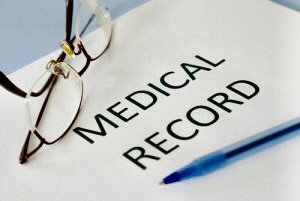Medical records of the deceased were admitted into evidence as business records in Re Singh Estate 2019 BCSC 272.
In Ares v Venner (1970) SCR 608 at 626 held that medical records can be admitted as an accurate record of facts of the author, and that the author had first-hand knowledge of those facts.
In Baas v Jellema 2000 BCCA 24 .the appeal court held that a medical record containing a fact or first-hand observation is admissible to prove a fact, but it is not admissible to prove the truth of a medical opinion.
The clinical records are hearsay, but are admissible under the business records exception both that common-law and under section 42 of the Evidence Act.
The principles were summarized in McTavish v . McGillivary (1997) 38 BCLR 306:
1. The notes taken must be made contemporaneously;
2. The notes must be made by someone having a personal knowledge of the matter is being recorded;
3. The notes must be made by someone who has a duty himself or herself to record the notes or to communicate the notes to someone else to record as part of the usual and ordinary course of their business;
4. The matters which are being recorded must be of the kind that would ordinarily be recorded in the usual and ordinary course of that business;
5. A statement in the records of the fact that a certain diagnosis was made will be admissible;
6. Recorded observations, diagnosis and opinions will be admissible providing they are recorded in accordance with points 1 through 4;
7. The fact that the referring doctor relied upon another doctor’s opinion to assist in coming to his or her own diagnosis and opinion is only evidence of that fact, so that the other opinion does not become evidence unless it is otherwise admissible. Accordingly, it is only evidence of the fact that the referring doctor wished or required that opinion to be received before forming his or her own opinion.;
8. Statements made by parties or by experts which are recorded in the usual and ordinary course of business, but which lie outside the exception to the hearsay rule are hearsay and will not be admitted into evidence unless they can be brought within section 14 of the evidence act, which allows for the admissibility of such statements. If it can be sure that they are proof of a prior inconsistent statement
In Cambie Surgeries Corporation v BC AG 2016 BC SC 1896, the court clarified that a patient or other third party must be within the observation of the medical practitioner who has a duty to record the observations in the ordinary course of business. The court held that any statement by the patient or any third party that is not within the observation of the doctor or person who has a duty to record such observations in the ordinary course of business is not admissible for any purpose and will be ignored by the trier of fact

